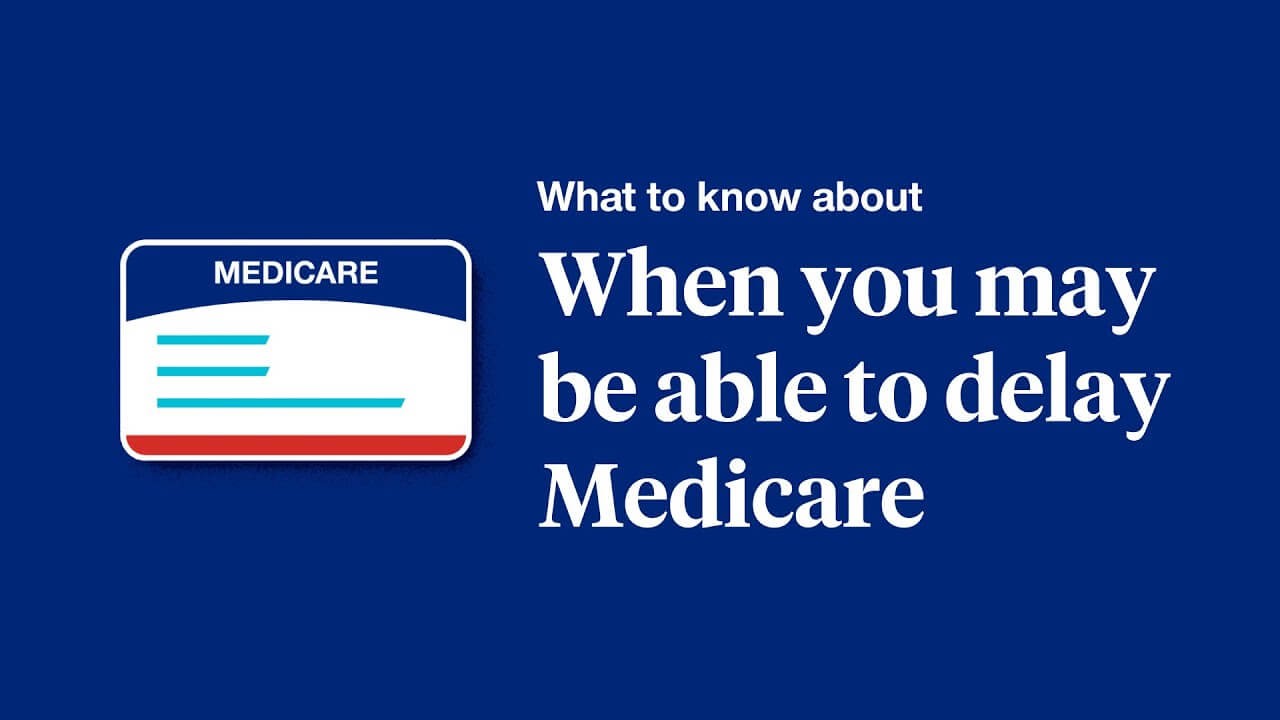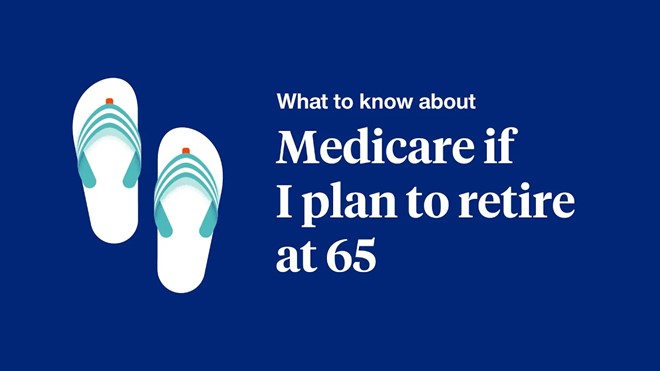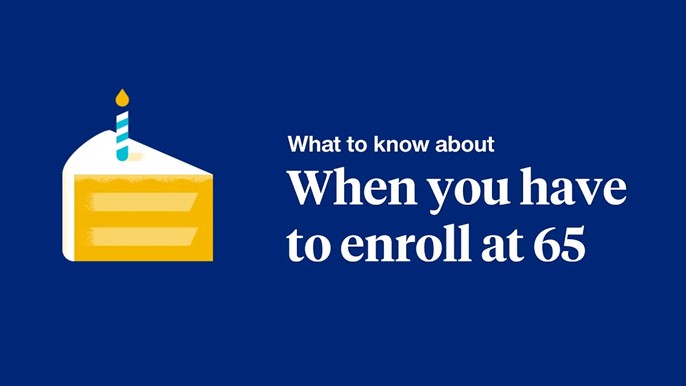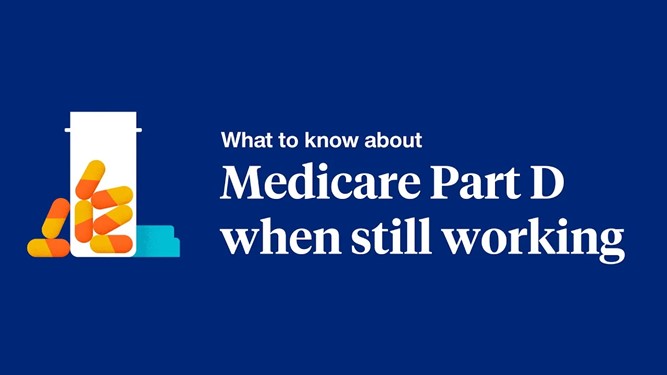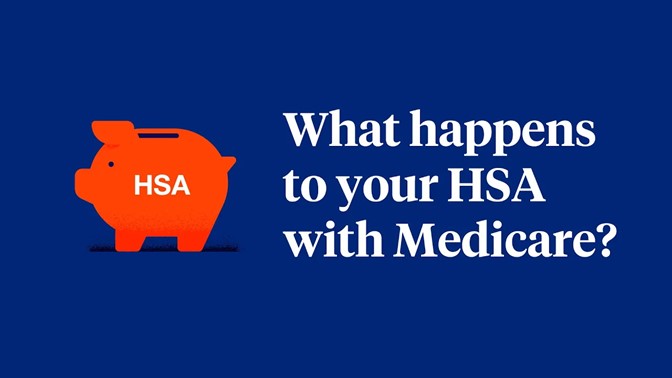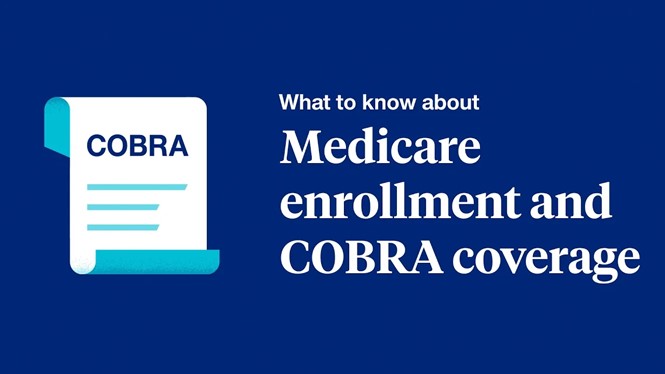Upbeat music plays as the UnitedHealthcare logo becomes ribbons that swoop across the screen. A text bubble pops up.
ON SCREEN TEXT: Working past 65…
ON SCREEN TEXT: Medicare Conversations
A Medicare card appears.
ON SCREEN TEXT: What to know about when you may be able to delay Medicare
A suited man interviews.
ON SCREEN TEXT: Phil Moeller Author and Medicare expert
PHIL: Hi, I'm Phil Mohler. I write articles and books about retirement and health care. And I've written a lot of pieces about Medicare.
An icon with buildings moves across a timeline, and stops at 65, which has a picture of a birthday cake above it.
PHIL: When people approach 65 decide to keep working, they have some important decisions to make about Medicare. I'm going to talk today about the decisions you need to make when you work for a large employer with 20 or more employees.
ON SCREEN TEXT: 20 or more employees
PHIL: Medicare rules in that situation give you the right to do nothing. If you choose, you can just keep your Medicare. But it also sets up a series of possible decisions. And I want to sort of talk about those today. There are really three pathways here.
Three lines branch off from the icon with buildings.
ON SCREEN TEXT: Employer plan Employer plan only
ON SCREEN TEXT: Employer plan and Medicare
ON SCREEN TEXT: Medicare only
PHIL: The first one, as I said, is you can keep your employer plan and you don't need to get Medicare. The second approach is you can keep your employer plan, and you can also get Medicare. And there are some situations where that makes sense. The third pathway is, well, you can get Medicare and you can drop your employer plan. So these are the three pathways. Let's talk about them in order.
ON SCREEN TEXT: I only want my employer plan
PHIL: So when you decide that you're simply going to do nothing and keep your employer plan, there's one wrinkle I want to make sure you're aware of.
Pills and prescription bottles fall onscreen.
ON SCREEN TEXT: Medicare drug coverage = Employer drug coverage
PHIL: Even though your employer is obligated to continue offering you health coverage, including drug coverage, Medicare rules stipulate that your drug coverage in your employer plan has to be at least as good as a typical Medicare Part D plan.
ON SCREEN TEXT: Notice of creditable coverage
PHIL: If it is fine, and your employer has to give you a statement that attests to this. People don't know that their statement even exists, let alone that they should ask for it. But your employer has a legal obligation to provide this, it's a key piece of paper for you.
The pills and prescription bottles appear.
ON SCREEN TEXT: Medicare drug coverage = Employer drug coverage
PHIL: Because if your plan is credible, you're fine. But if your plan is not credible, then you have to get a Part D plan. Even though you're going to keep your employer coverage. In that situation, you can get a Part D plan without having to also pay for part B, all you have to have is part A, and you get a Part D plan.
ON SCREEN TEXT: Required: Medicare Part A
Not Required: Medicare Part B
PHIL: You keep your employer plan. That's the most significant sort of implication of keeping your employer plan as far as Medicare is concerned.
ON SCREEN TEXT: I want Medicare and my employer plan
PHIL: The second situation is you decide, “Well, I think I want to keep my employer plan and I also want to get Medicare.” In that situation, you really need to pay attention to what is Medicare going to give me or get for me that my employer plan is not going to cover.
ON SCREEN TEXT: Employer plan
ON SCREEN TEXT: MEDICARE
PHIL: Historically, people tended to just keep their employer plans and they didn't worry about getting Medicare when they turned 65. However, employer plans have changed a lot in recent years.
ON SCREEN TEXT: High deductible health plan $3,245
PHIL: Many people now have what are called High Deductible Health Plans. You may pay three $4,000, or even more out of pocket before your employer health coverage starts helping you pay those bills. In that case, it can make a lot of sense to get a Medicare plan, which can help pay that deductible for you. Also, Medicare may cover some things that your employer plan doesn't.
ON SCREEN TEXT: Hearing Vision Dental Gym membership
PHIL: In particular, a Medicare Advantage plan can cover health clubs and dental, hearing, and also some vision coverage that your employer plan may or may not cover as well. So, look at what your employer plan covers, see what you're exposed to in terms of cost and coverage features. And then you may decide that you actually want both.
ON SCREEN TEXT: I only want Medicare
PHIL: The third thing is you look at your employer plan, and you look at what Medicare offers. And you say, “Well, that's pretty expensive to do both of these, maybe all I need is Medicare.”
ON SCREEN TEXT: Employer MEDICARE plan
PHIL: And that's quite possible. You need to understand what Medicare will cover and see what would happen to you if you don't have that employer plan anymore. In that case, you also need to pay attention to what happens to your family. If your spouse and your children are insured on your employer plan, you probably want to think long and hard before you drop that employer plan.
ON SCREEN TEXT: Medicare coverage
ON SCREEN TEXT: Employer coverage
PHIL: Although it's still possible that you and they could be better off if you dropped your employer plan and they went on a state insurance exchange and got their coverage. Those are decisions that you can make. One thing I will say is that you don't want to wait too long to make these decisions. And you also don't want to guess about what's going on.
Checkmarks appear over a list on a notepad.
ON SCREEN TEXT: Don’t wait too long Don’t guess
PHIL: Because you can't make an informed decision if you're not informed, to say the least.
ON SCREEN TEXT: So, what is the takeaway?
ON SCREEN TEXT: 20 or more employees
ON SCREEN TEXT: Your employer must continue offering health coverage
PHIL: We've covered lots of ground today, so let's recap a bit. If you work for a large employer with 20 or more employees, the employer must continue offering you health coverage. You have three decisions. You're going to just keep your employer plan, you're going to get Medicare plus your employer plan, or you're going to drop your employer plan and just get Medicare.
ON SCREEN TEXT: Employer plan only
Employer plan + Medicare
Medicare only
PHIL: All of these decisions should be based on information and knowledge about what's covered, what's not, what it costs. That's information that you need to get from your employee benefits department and you need to get it before you turn 65.
ON SCREEN TEXT: Talk to your employee benefits department
PHIL: Don't dawdle here. You really need to act on a timely basis to make sure you make informed Medicare decisions. If you have any more questions, you can go to MedicareMadeClear.com and get additional information. Thanks so much for spending some time with me.
ON SCREEN TEXT: What if I still have questions?
ON SCREEN TEXT: Visit MedicareMadeClear.com
ON SCREEN TEXT: Medicare Made Clear brought to you by UnitedHealthcare
The UnitedHealthcare logo appears.
ON SCREEN TEXT: UnitedHealthcare
Faint text sits at the bottom of the screen.
ON SCREEN TEXT: ©2021 United HealthCare Services, Inc. All Rights Reserved. Medicare Made Clear® by UnitedHealthcare®
Y0066_WP65Delay_C
